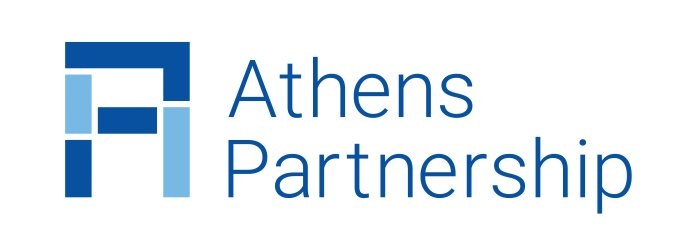In addition to its antiquities, Greece is renowned for its severe economic crisis and the accompanying frightening statistics that demonstrate its harsh impact on residents: 50% unemployment rate among young residents; 15% living in extreme poverty. In addition, beginning in 2015 Greece was faced with an international humanitarian crisis as fleeing refugees flocked to the country, further draining the country’s limited resources.
The creation of the Athens Partnership strengthened Municipal services, by forging alliances with private sector partners.
With the public sector under huge strain, cutting down even on the most basic services, many Greeks in and outside of the country stepped up and asked, “How can I help?” Unfortunately, good intentions and a desire to help do not always translate to impactful and lasting results. When it comes to philanthropy, many challenges stand in the way, such as how to coordinate and direct private investments in an efficient and effective way, and how to make meaningful and sustainable change. Enter: The Athens Partnership (AP), which was formed in 2015 to tackle these challenges and to leverage the existing services and resources of local government.
An early advocate for the AP model, the Stavros Niarchos Foundation committed 10 million euro to support the Municipality of Athens and entrusted AP to administer its generous grant for the benefit of Athenians. After two years, AP launched over a dozen impactful programs garnering the support of many donors and project partners. Our Biennial Report features a robust description of the cross-sector programs launched in coordination with the City of Athens and the outcomes to date. What is more difficult to convey is how AP has helped to rethink and reawaken some of the City’s essential services, developing a new framework for collaboration, transparency, and accountability.
Transformational programs: in Designed for Better Learning schools, 77% of students report leaving school happy.
For instance, Designed for Better Learning could have been a simple renovation of public school buildings in dire need of attention, however, working with the Technical University of Crete, we reimagined a new way of teaching, learning and community engagement. Twenty-four schools (5% of City schools) were transformed and new activities, co-created with students, were embedded such as IT training and DIY construction. AP has received over 40 requests to replicate this program.
Transformational results were also achieved in our Commercial Triangle initiative, which helped turn around a crowded city center filled with tags into a new vibrant area, boosting business conditions and attracting tourism. It took cleaning 6.000 square meters of walls and storefronts, removing illegally parked cars, creating new pedestrian streets, and most importantly, working closely with local business owners and residents on every step to ensure success and sustainability.
Reshaping the heart of Athens: the Commercial Triangle program is removing tags and cleaning walls and storefronts, creating new pedestrian streets, in cooperation with local business owners.
Addressing one the most pressing emergencies in Athens, the Athens Partnership became a catalyst to public and private efforts assisting refugees and migrants. The creation of the Athens Coordination Center for Migrant and Refugee Issues enabled the City of Athens to assume a proactive role in the coordination of 75 NGOs and government agencies—helping to identify gaps, avoid duplication of efforts, promoting the integration of migrants and refugees as well as preparing for a possible future emergency. This program has fundamentally begun to change the way resources are channeled to address the refugee crisis, building synergies between private and public sector partners.
Above all, the success of the Athens Partnership is good news for the City Athens and its residents—new and old. As noted in our Biennial Report, over 70,000 Athenians have been directly served by the work of the Athens Partnership since its launch. We are confident this is only the beginning.
We are deeply thankful to our growing list of partners and donors committed to the health and well-being of Athenians and our country. In spite of the challenges we face, we can only be optimistic about the future: by harnessing this powerful mix, there are no limits to what our City can achieve ahead!



